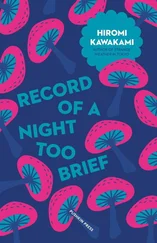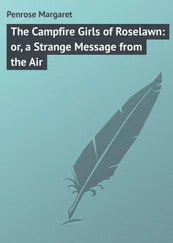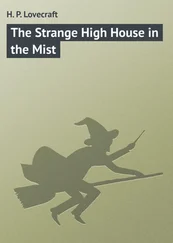I had been lazing about in bed until past noon. Work had been extremely busy for the past month. It was always close to midnight by the time I got home. For days on end, I would hastily scrub my face before falling into bed, without bothering with my nighttime bath. Even on weekends, I almost always went in to the office. I had been eating terribly and, as a result, I looked drawn and haggard. I’m a bit of a gourmand, so when I’m not able to take the time to indulge my tastes as I please, I begin to lose a certain vitality, as was reflected in my pallid complexion.
Then at last on Friday—yesterday—I had successfully gotten through a major portion of the work. For the first time in what felt like ages, I slept in on Saturday morning. After having a good lie-in, I ran a hot bath, right to the brim, and took a magazine in with me. I washed my hair and immersed myself countless times in the hot water, into which I had trickled a wonderfully scented potion, occasionally stepping out to cool off, all the while perusing about halfway through the magazine. I must have spent nearly two hours in the bathroom.
I drained the water from the bath and quickly scrubbed the tub, and then I pranced about my apartment, naked except for a towel twisted atop my head. It was one of those moments when I think to myself, I’m glad to be alone. I opened the refrigerator and took out a bottle of mineral water, poured half of it into a glass, and gulped it down. It made me think about how I had hated mineral water when I was younger. In my twenties, I had traveled to France with a girlfriend of mine, and we had gone into a café to get something to drink. I just wanted plain, regular water, but when I ordered “Water,” they brought out mineral water. I was so parched and hoping to quench my thirst, but the moment I swallowed it down, I choked and nearly threw up. Yet I was so thirsty. And here was water, right in front of me. Yet this water—with bubbles springing up from the carbonation—was a bitter mouthful. Even had I wanted to drink it, my throat would have rejected it. But since I didn’t know enough French to say, “I would prefer still water rather than water with gas,” I forced my friend to share with me the lemonade that she had ordered. It was terribly sweet—awful, really. That was before I was in the habit of slaking my thirst with beer instead of water.
I started to enjoy carbonated water when I was in my mid-thirties, around the time I started drinking highballs and shochu with soda and the like. At some point I started keeping a few tall green bottles of Wilkinson soda water in the fridge. For that matter, I also keep a few bottles of Wilkinson ginger ale, for the occasional times when a friend who doesn’t really drink stops by. In general—with clothes or food or gadgets—I have no particular brand loyalty, but when it comes to soda water, the only kind I drink is Wilkinson soda water. The main reason is probably because the liquor store two minutes away happens to carry Wilkinson brand soda water. That may seem like happenstance, but if I were to move and there were no liquor store in my new neighborhood, or if there were one and it didn’t carry Wilkinson’s superior products, then I would probably no longer bother keeping soda water around at all. That’s the extent of my partiality.
Often when I was alone, such were the contents of my head. Random thoughts about the Wilkinson brand or a European trip from the distant past would bubble up in my mind, like effervescent carbonation, and continue their wistful proliferation. I was still naked, standing idly in front of the full-length mirror. I had a habit of acting as though I were having a conversation with someone beside me—with the me who was not really right there beside me—as if to validate these random effervescences. What I see in the mirror is not my own lithe, naked body, more than necessarily subject to gravity—I’m not speaking to the me who is visible there, but rather to an invisible version of myself that I sense hovering somewhere in the room.
I stayed in my apartment until evening, passing the time leisurely reading a book. At one point I felt sleepy again and napped for about half an hour. When I awoke, I opened the curtains to see that it was completely dark out. It was early February, and according to the lunar calendar the first day of spring had passed, but the days were still short. I find something quite carefree about the days around the winter solstice, when the daylight is so brief it seems like it’s chasing you. Knowing that it will soon be dark anyway, I’m able to steel myself against that inevitable sense of regret brought on by the evening twilight. This time of year, rather, with its prolonged nightfall—it’s not dark yet, soon but not quite dark yet—seemed to play tricks on me. The moment after I realized it was dark, I would feel a surge of loneliness.
That’s why I left the apartment. Out on the street, I wanted to make sure that I wasn’t the only one here, that I wasn’t the only one feeling lonely. But this wasn’t the kind of thing you could tell just by looking at the passersby. The harder I tried to see, the less sure I was about anything.
It was then that I unexpectedly ran into Sensei.
• • •
“TSUKIKO, MY BUTT hurts,” Sensei blurted out as we stood there together.
What? Shocked, I checked his expression and, rather than pained, he looked quite impassive. What happened to your butt? I asked, and Sensei frowned slightly.
“A young lady mustn’t use a word like ‘butt.’”
Before I could say, Well, what the hell word should I use then? Sensei added, “There are various other options such as ‘backside’ or ‘posterior’ and so forth.”
He went on, “Indeed, it’s a shame what limited vocabularies young people have nowadays.”
Without answering, I laughed, and Sensei laughed too.
“So then, don’t let’s go to Satoru’s place tonight.”
Shocked once again, I thought, What? Seeing my reaction, Sensei nodded lightly in my direction.
“If I appear to be in pain, Satoru will worry. I have no intention of causing someone concern while I’m having a drink.”
I was about to ask, In that case, why bother going for a drink at all?
“But you know what they say: ‘Even a chance meeting is the result of a karmic connection.’”
Do you think you and I have a karmic connection? I asked.
“Tsukiko, do you know what that means, a ‘karmic connection’?” Sensei asked in return.
Something to do with chance? I ventured after thinking for a moment.
Sensei shook his head with furrowed brows. “Not chance, but rather, destiny. Transmigration of the soul.”
I see, I replied. I, uh… Japanese class was not my best subject.
“That’s because you didn’t study hard enough,” Sensei said judgmentally. “Tsukiko, the idea of karmic destiny comes from the Buddhist concept that all living things are reincarnated again and again.”
Sensei stood in front of the odenya that was next door to Satoru’s place before we ducked inside. Looking closely, I noticed that Sensei’s torso was indeed slightly off-kilter as he walked. I wondered how much his butt—or rather, his backside—was hurting him. I couldn’t tell anything from his expression.
“Hot saké, please,” Sensei called out, and I ordered a bottle of beer. We were promptly served, a hot saké bottle and a half-liter bottle of beer, along with a saké cup and a beer glass. We each poured into the appropriate vessels for ourselves and said cheers.
“So, in other words, a karmic connection refers to a bond from a previous life.”
A previous life? I said, slightly raising my voice. We were connected in a previous life, you and I?
Читать дальше
![Хироми Каваками Strange Weather in Tokyo [= The Briefcase] обложка книги](/books/29150/hiromi-kavakami-strange-weather-in-tokyo-the-br-cover.webp)










